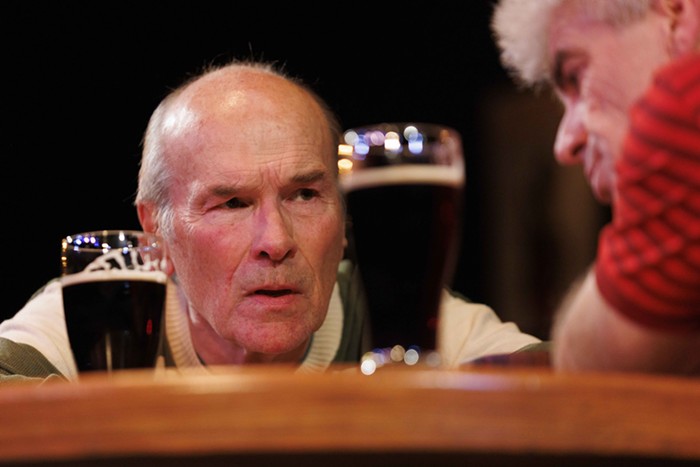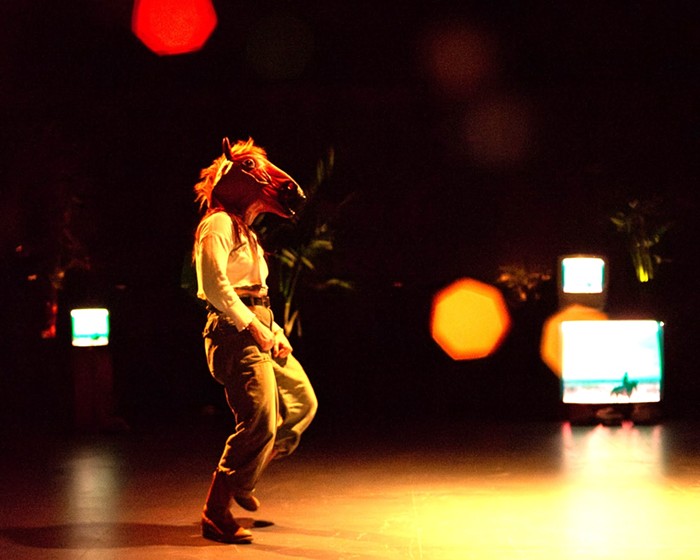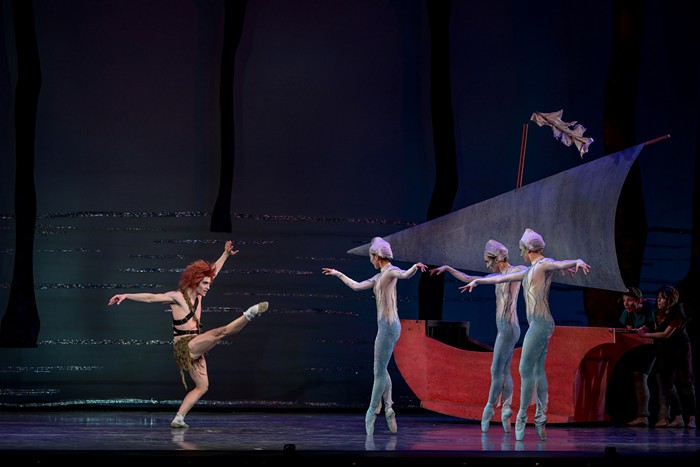WHEN TOTALLY BIASED debuted on FX in 2012, the New York Times dubbed host W. Kamau Bell "the most promising new talent in political comedy in many years." But the show died before its time. Along with writers like the acerbic Hari Kondabolu and the sweetly twisted Aparna Nancherla, Bell skewered the news from a perspective that was decidedly non-white. The show was produced by Chris Rock, who plucked Bell, a stand-up, from relative obscurity. We talked to Bell about losing the show, working with Rock, returning to the stage, and more.
MERCURY: How surprising was the cancellation of Totally Biased?
BELL: When the hammer finally came down, it wasn't that surprising. It had been in the wind for a couple of weeks. And that was way harder than the actual cancellation. Not knowing sucked. And there was also this weird pressure suddenly to try to do better... when I was already giving it everything I had. But I always say it could have been worse. They could have not given me a show in the first place.
Any regrets, or things you planned to do but never got the chance?
The regrets are all things behind the scenes that have to do with wishing I knew more about TV production before I had my own show. I wish the show had been better so our ratings were higher and all those talented people I worked with could have kept their jobs. I could have been a better leader. But I truly did the best I could, and there is work that I did or that I oversaw on Totally Biased that I will be proud to associate with my career from here on out. There are moments that probably won't be topped. But as far as things I wish I could have done, I'm still here. The show was cancelled. I wasn't. So I still believe I might do those things. Samuel L. Jackson owes me a conversation.
Totally Biased filled a need for a comedic skewering of the news from a non-white perspective. Then again, I'm a white dude who loved the show. How did the audience seem to break down for you, and is there any place on cable continuing in that vein?
I think there are places on cable that would like to do that. In fact, I'm having conversations with some of them. MSNBC probably employs more black people on camera than BET. And the difference is those black people get to talk about everything, not just "black stuff." And even though they are journalists and not comedians, I trust them more because I think we have similar things at stake. But as a far as topical comedy from a black perspective on television... Arsenio is where it lives now as far as I know.
I feel like our core audience was black women and the people who hang out with black women. And then, because our show very aggressively took on big cultural issues, we had people who were sucked into the show because of their thing and then stuck around for the rest.
Also, if you do anything in America with any degree of success, white guys are going to show up to watch, either because they really like it or because they really, really don't. And as I always say, some of my best whites are friends.
What did working with Chris Rock teach you? Anything particular in regards to your stand up?
Chris thinks about comedy the way a great athlete thinks about their job. You are supposed to leave it all on the field. Don't save anything for later. Put your all into the show that is in front of you and let the chips fall where they may. He told me early on, "Don't save jokes for your stand-up act. Put it in the show. You're funny. You'll write more funny things." It is a truism of comedians that we tend to think of our jokes as babies who are precious and should be taken care of very well. I think Chris thinks his jokes are like the old Dunkin Donuts ad. Every morning it's time to make the donuts. Obviously, Chris isn't making any regular donuts though. He's making like fresh, hot Voodoo Donuts. PORTLAND REFERENCE!!
Also he taught me that a comedian should always, always, always be looking for jokes on the way to the joke. This is especially true of comedians like me who tend to write in a long-form style. That has definitely affected my stand up. And also honestly many pieces of advice Chris gave me are too profane to be printed in a respectable family newspaper like this. Talk to me at the show.
How has your stand up changed since doing the show? Obviously you've been introduced to a wider audience, and people are now not going to be surprised when they show up to a comedy show that's so heavy into politics. But I imagine your act has evolved, as well as your audiences.
My stand up is still changing since the show. I'm sort of in the middle of this process. It's great to have people who have a familiarity with me when I show up to stages. I had that in the Bay Area for several years and it's great that it is now happening in other cities. Also I am really relishing the freedom of not being tied to a script and a screen. This is going to be a very playful tour for me. I can feel it. And I don't think of my act as being heavy into politics. I think of it as heavy into giving a shit. My act is also getting more personal as I learn this whole being a dad thing. Which actually makes me give a shit even more.
What issues have you been dying to talk about lately?
The Oscars and how I hope 12 Years A Slave doesn't lead to 13 and 14 Years A Slave. I'm thinking about how mainstream America is about to be taught a bunch of new words to describe gender by the trans community. I'm thinking about George Zimmerman, who just won't just go away. Celebrity boxing? Really, George? I got a better idea. How about celebrity car tailpipe sucking?
Are you doing a traditional hour, or using any multimedia in the show? I remember the presentation-type performance of the W. Kamau Bell Curve in the past...
This is an old school stand up comedy show. The thing I am most excited about with the end of Totally Biased is not being tied to the screen anymore. There will be more screens in my future but not on this tour. I want the intimacy of the moment where anything can happen. Besides, FX wouldn't let me take the screen with me after the show was canceled. They caught me trying to shove it in my backpack on the way out the door.
Any bits in your act that diverge from politics? Are serious issues the reason you got in to comedy?
Interestingly enough, I don't think of my act as explicitly political. I think of it as the stuff I like thinking and talking about. Whenever I write jokes about "less-heated subjects," I just am never able to pull them off more than a couple of times. There are certainly times I feel a responsibility to talk about things that I expect my people will want me to address, and that can be a challenge if I just don't feel like I have anything yet. But that's why I like stand-up.
And also, my act is fairly goofy for a dude who is supposed to be talking about the issues! I learned from one of my favorite comics, Robert Hawkins, that if you can make it silly and serious in rapid succession or sometimes simultaneously, you can obscure how much of your act is just, "The world sucks. We're all doomed. Good night."
I got into comedy because I wanted to be funny in front of strangers. I had no political agenda or message for years. But I come from one of the black families where we talked about race and racism all the time. I used to have a joke in my act about my mom where I said, "I was 11 years old before I realized that a cracker was also a delicious snack." So I just drifted in this direction... or was pulled by my subconscious.
I tend to make most of what I'm talking about personal, which helps it not come off like a soapbox, and again also proves to the audience that I have a stake in how this all works out. Also, I talk a good bit about my daughter, and who can resist listening to stories about a mixed race child? Oops, I just probably made it political again. Well, you know what? Rage Against the Machine never made any love songs either.



















